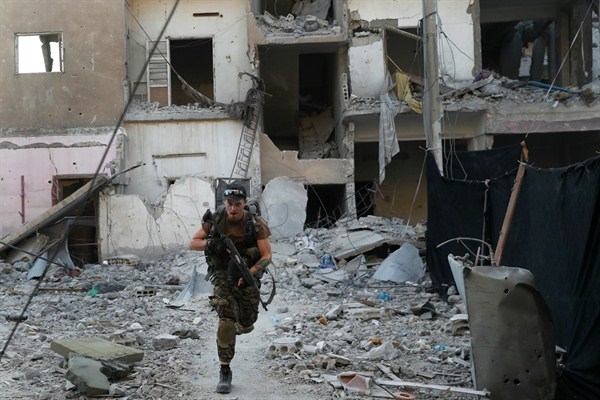Mission accomplished? That was doubtless then-President Barack Obama’s expectation as he anxiously watched a team of American Navy SEALs kill al-Qaida’s leader, Osama bin Laden, six years ago. It was clearly Iraqi Prime Minister Haider al-Abadi’s hope last month when he visited the city of Mosul, newly liberated from the self-proclaimed Islamic State.
But consider this: Al-Qaida had some 400 combatants on Sept. 11, 2001. Today it is stronger than ever, with several thousand adherents in countries from the Arabian Peninsula to Southeast Asia. If Western powers like the United States and the United Kingdom and their regional partners like Iraq continue to frame the countering of violent extremism as an existential “war on terror” that ends only when the last terrorist has been killed, the campaign against the Islamic State will be no more successful than the fight against al-Qaida.
We are not doing everything wrong, and the terrorists are not doing everything right. In hindsight, the Islamic State paid a high price for the short-term public relations benefit of holding territory and calling itself a state, since it was bound to be defeated in a pitched battle against the powerful coalition assembled against it. The jihadi group also made a mistake in committing such barbaric atrocities, as alienation began to outweigh intimidation among the populations it controlled. And the coalition against the Islamic State was probably right to apply some military pressure to break the militants’ aura of invincibility, which was a powerful recruitment tool.

